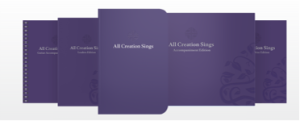In the coming weeks, those in the United States will mark two significant anniversaries: five years since the murder of George Floyd in Minneapolis, Minnesota (May 25, 2020) and ten years since the murder of the Emanuel Nine at Mother Emanuel AME Church in Charleston, South Carolina (June 17, 2015).
The collects and petitions for the prayers of intercession provided below could be used as desired in worship on the Sundays closest to these dates. As with all prayers crafted for assembly worship, they may be adapted as needed for local use. The responses to the petitions match those provided in Sundays and Seasons for that Sunday and can be updated to fit your local practice.
As the church marks the 5th anniversary of the murder of George Floyd on May 25, 2025:
Collect
God of justice, the breath choked from George Floyd still haunts our streets and sanctuaries. We remember his name, his cry for mercy, and the uprising of sorrow and truth his death unleashed across the world. We confess the sin of racism—not only in systems and structures, but in the habits of our hearts and the silence of your church. Trouble our hearts until they break open with compassion. Strengthen us to labor for what still remains undone. Breathe your Spirit into your people, until all can breathe free, through Jesus Christ, our crucified and risen Lord. Amen.Petition to include in the Prayers of Intercession
God of justice, the breath choked from George Floyd still haunts our streets and sanctuaries. We remember his name and his cry for mercy. Trouble our hearts until they break open with compassion. Strengthen us to labor for what still remains undone. Breathe your Spirit into your people, until all can breathe free. Hear us, O God.
Your mercy is great.
As the church marks the 10th anniversary of the murder of the Emanuel Nine on June 17, 2025 (or the previous Sunday, June 15):
Collect
God of mercy, ten years have passed, but the wounds of that night still cry out. We remember the slain of Mother Emanuel and grieve the hatred that desecrated their sanctuary. We confess the racism that endures in our nation and in your church. Turn our sorrow into repentance and our repentance into action. In our grief, show us the cross of Jesus Christ, your beloved, who has dismantled death in his dying. Though he still bears the wounds of our violence, he wears the crown of glory with all your martyrs, where he lives and reigns with you and the Holy Spirit, one God forever and ever. Amen.Petition to include in the Prayers of Intercession
God of mercy, ten years have passed, but the wounds of that night still cry out. We remember the slain of Mother Emanuel and grieve the hatred that desecrated their sanctuary. We confess the racism that endures in our nation and in your church. Turn our sorrow into repentance and our repentance into action. In our grief, show us the cross of Jesus Christ, your beloved, who bore the wounds of our violence, and now wears the crown of glory with all your martyrs. God of grace,
hear our prayer.
Additional resources for the anniversary of Emanuel Nine, including worship resources, are available at ELCA.org/EmanuelNine.


 The Power of Language in Worship
The Power of Language in Worship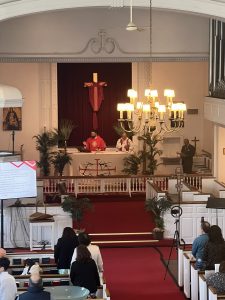



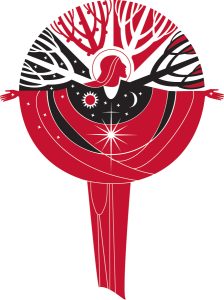
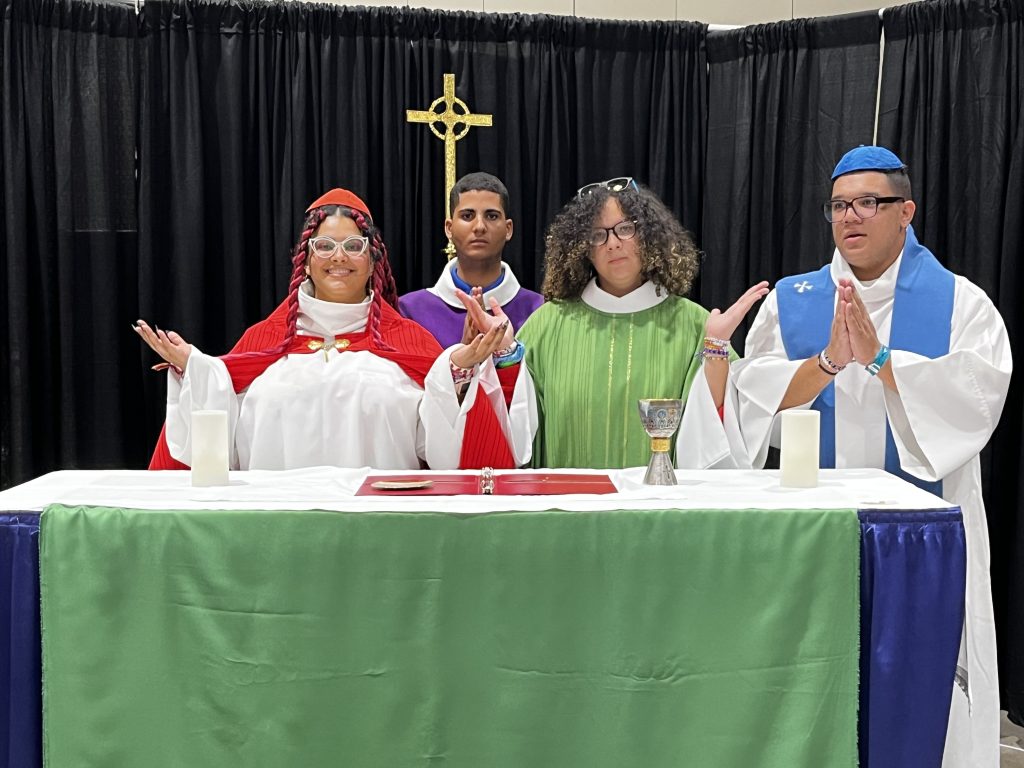
 Activities included the ever popular “Acolyte Olympiad” with new competitive categories for pastors and bishops. The “Vestment Photo Booth” was, once again, a youth favorite as we witnessed so many young people seeing themselves in church leadership no matter how many silly poses or creative vestment combination choices they made. In the “Music Corner,” (where we always clap on 2 and 4), youth could show off their musical skills or learn how to use a new percussion instrument. We even had a few spontaneous hymn sings! The ELCA Spiritual Renewal Team brought new ways to pray with fun things like Jenga, coloring, and labyrinths. Before youth left our area, we encouraged them to grab a button to write their own dismissal with the encouragement to take them home and use them in worship. Additionally, we had a baptismal remembrance table, information about Lutheran Summer Music
Activities included the ever popular “Acolyte Olympiad” with new competitive categories for pastors and bishops. The “Vestment Photo Booth” was, once again, a youth favorite as we witnessed so many young people seeing themselves in church leadership no matter how many silly poses or creative vestment combination choices they made. In the “Music Corner,” (where we always clap on 2 and 4), youth could show off their musical skills or learn how to use a new percussion instrument. We even had a few spontaneous hymn sings! The ELCA Spiritual Renewal Team brought new ways to pray with fun things like Jenga, coloring, and labyrinths. Before youth left our area, we encouraged them to grab a button to write their own dismissal with the encouragement to take them home and use them in worship. Additionally, we had a baptismal remembrance table, information about Lutheran Summer Music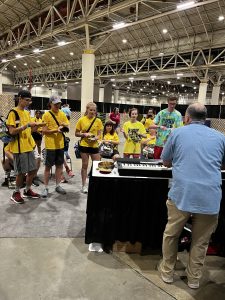
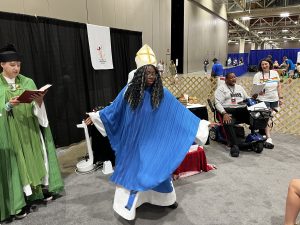
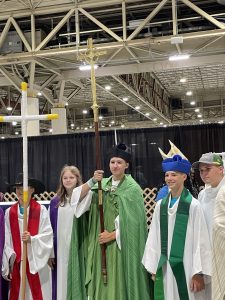
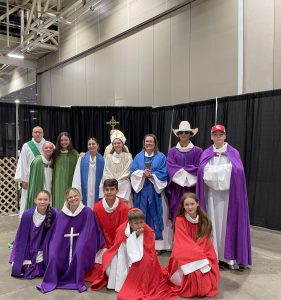
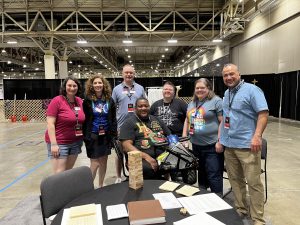
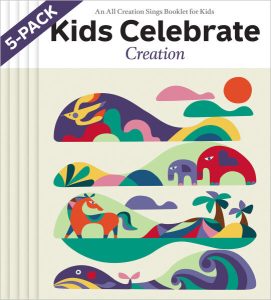
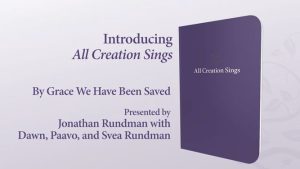 Introduce two new songs with reformation themes,
Introduce two new songs with reformation themes, 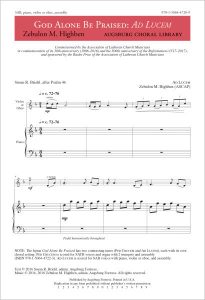 ,
, 